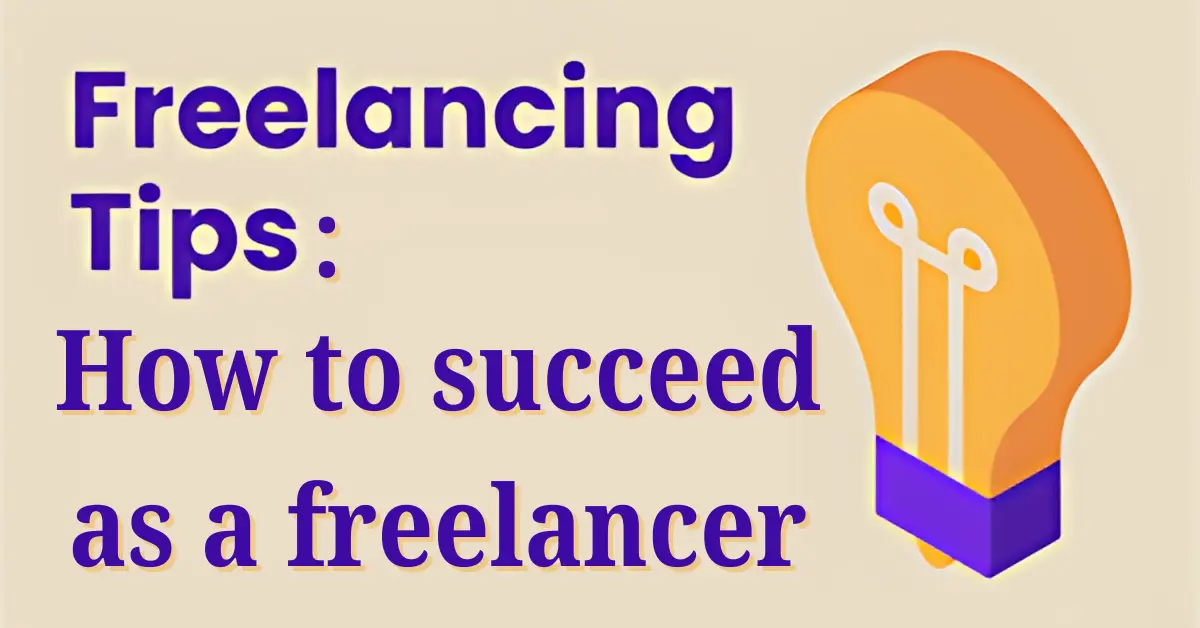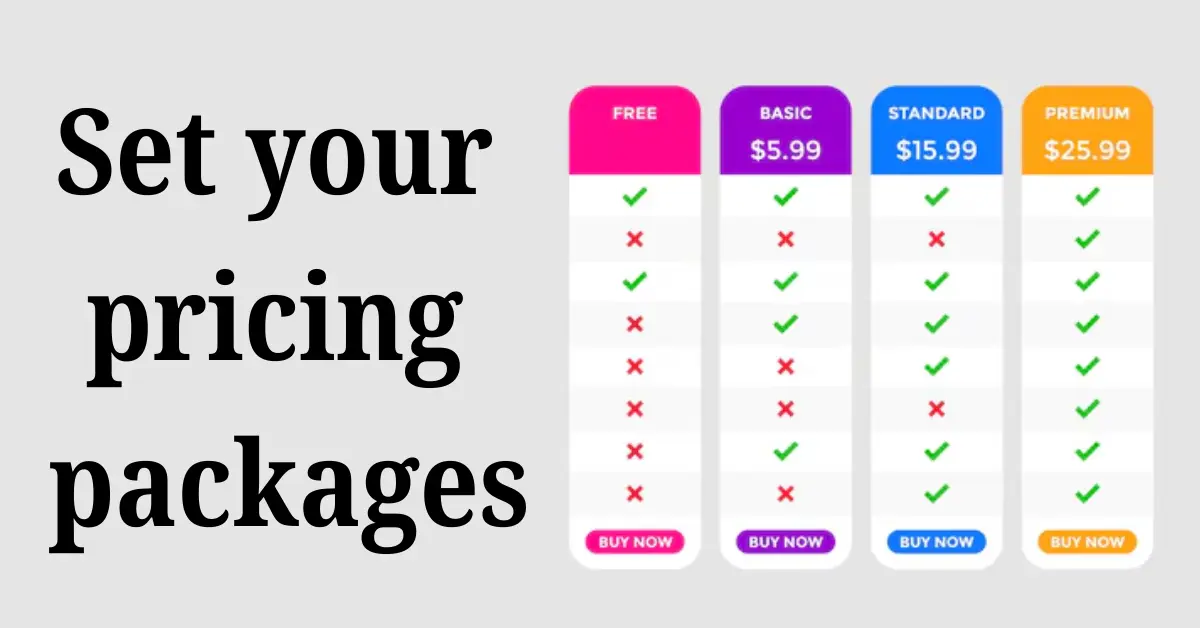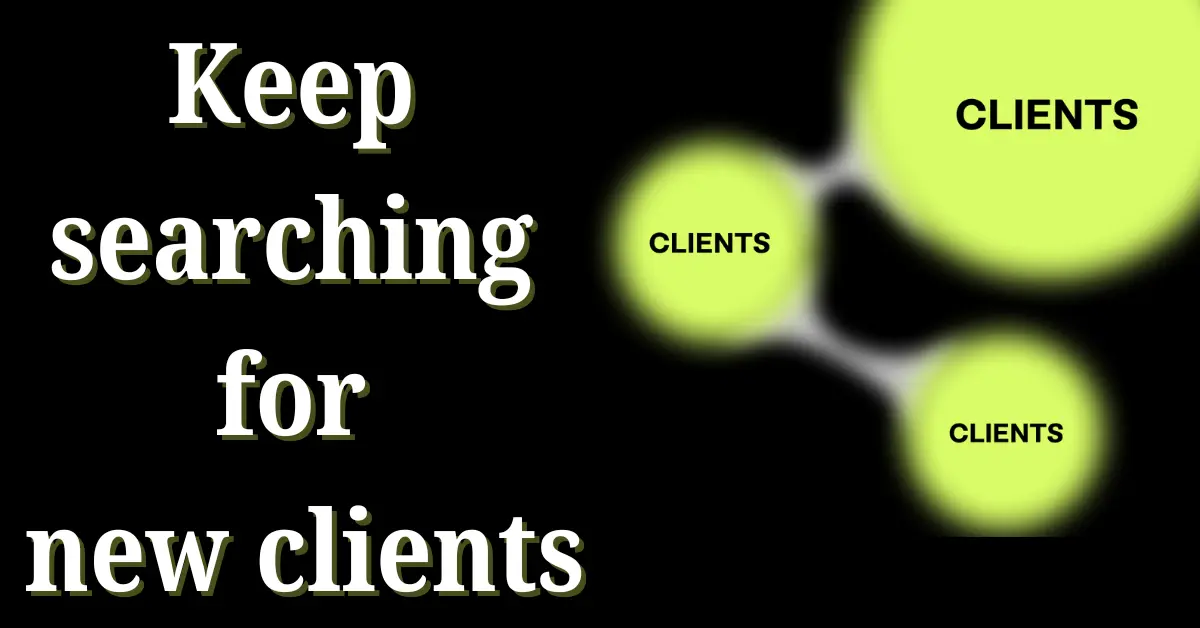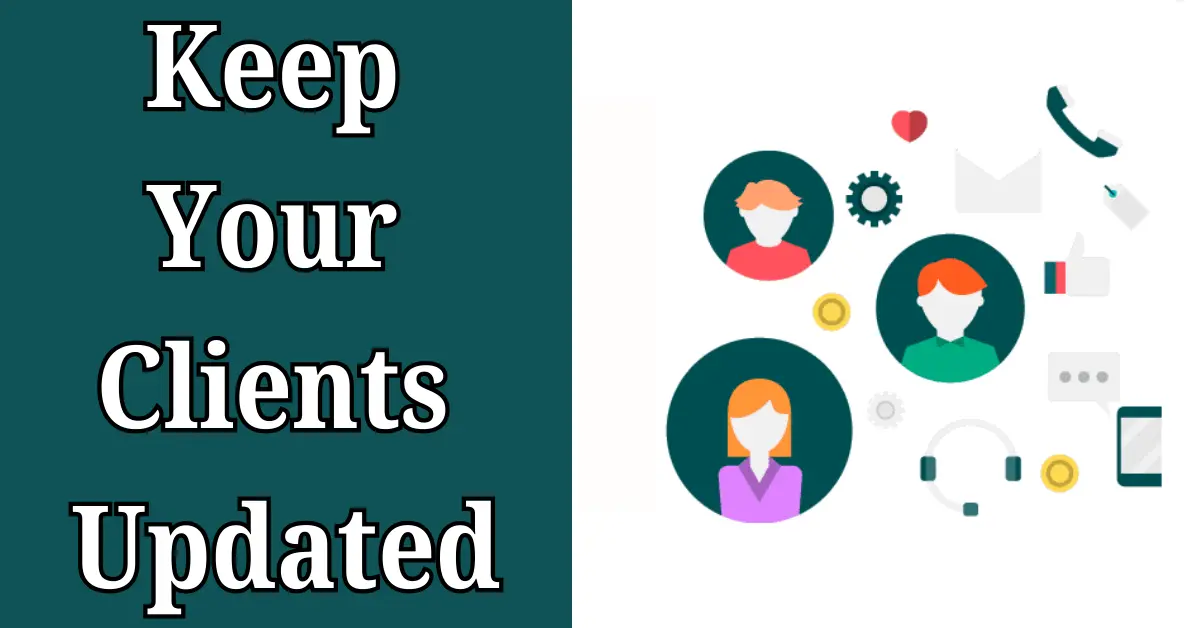In the world of freelancing, knowing the right strategies can help both fresh newbies and seasoned freelancers stand out and succeed. A special person who can execute smart moves will enjoy the advantages of being a top-performer. If you’re ready to dive into this journey, becoming a successful freelancer is absolutely possible I say this with experience, having walked this exact path myself.
Define and declare your niche expertise
Choosing a niche is the smartest move freelancers can make to avoid getting lost in the competition and to stand out in their industry. It’s crucial to clearly define your expertise and confidently declare it to the right audience. This can be done through your profile, marketing efforts, and every interaction you have with potential clients.
Specialize to Stand Out
Think of it like a roofing business. If you build websites specifically for roofing companies, you’ll speak their lingo, understand their pain points, and apply smarter business and marketing strategies. This is a far cry from chasing random projects on platforms like Upwork with weak proposals, as many copy-and-paste freelancers do. Specializing in a specific industry will help you get hired faster and at a better rate.
Avoid the Generalist Trap
Many legitimate freelancers make the mistake of being a generalist, trying to serve everyone. However, the best way to win and get hired is to be a specialist. Whether you’re offering premium websites or Roofing Websites, knowing your field and having a better eye for the design tools specific to that industry will set you apart from competitors.
The Cost of Choosing the Wrong Niche
I’ve seen firsthand how a miscalculation in choosing the right niche can shrink your opportunities. When you don’t specialize, you end up struggling to win bids, often settling for cheaper prices. The right businesses are willing to pay top dollar if you position yourself well in a niche market. Once I focused on building websites for specific industries, my projects finished twice as fast, and my dollars per hour doubled, proving that specializing turns you from a freelancer into an expert.
My Experience with Niche Specialization
At the start, my first few websites were slow and inefficient. I was researching every new project, recreating resources, and designing without systems. But once I focused on my expertise and chose a niche, I could complete projects faster and earn a much higher hourly rate. By specializing, I was able to cut the denominator (time) down, allowing my numerator (charge) to grow massively—almost like achieving infinite dollars per hour.
Why Niche Selection is Key to Success
Today, I guide new freelancers to pick a niche, dig deep into their industry, gather valuable lessons, and focus on working smarter, not harder. If you dream of a six-figure salary or even growing into a 7-figure agency or 8-figure agency, establishing your niche is one of the most crucial freelancing tips you must not ignore. After struggling to serve everyone, choosing a niche helped me get jobs faster, earn more, and feel more connected to the future client needs in ways I never imagined.
Set your pricing packages
One major freelance tip I’ve learned is that beginners often sabotage their own pricing by appearing desperate or unconfident, which can make a client think you are incompetent. Confidence is key in sales, and having a solid plan before starting any sales negotiation is crucial.
Treat Your Pricing Like a Productized Service
Think of your pricing packages like a dating game. You are offering a productized service where you clearly present different pricing tiers. This allows clients to choose the level of service they can afford, instead of you feeling the pressure to negotiate downwards during the project discussion.
Offer Multiple Tiers for Flexibility
A smart strategy is to set clear boundaries and negotiate confidently. By offering a premium-tier service alongside more basic options, you can make your service feel more structured and professional. This creates a win-win scenario, where the client feels they have options without forcing you to lower your prices to a rock-bottom rate.
My Experience with Pricing Packages
At the start of my career, I often felt stressed when clients tried to negotiate. But once I introduced clear pricing tiers and treated each conversation with calm confidence, my ability to win quality projects skyrocketed. Today, planning my pricing ahead of time has been absolutely critical to my success. I no longer feel the need to justify my rates—clients now see the value I offer upfront.
Do not depend on only one platform
Relying on just one platform for your freelancing work is like putting all your eggs in one basket. This can leave you vulnerable to unforeseen issues that may arise, such as algorithm changes or platform collapses.
The Risk of Relying on a Single Platform
Many freelancers rely heavily on platforms like Upwork, but what happens when a crazy client leaves you with a terrible review? That single incident can have a major impact on your entire business. Focusing solely on one platform might feel safe, but it can lead to an unsuccessful strategy, leaving you exposed and at the mercy of one system.
Diversifying Your Efforts is Key
It’s easy to get caught up in the temptation to focus on one marketplace, but depending on a single platform can limit your growth. Diversifying your efforts is crucial for long-term success. By branching out, you can protect yourself from the risks of relying on a single source.
My Experience with Platform Dependency
I’ve experienced this firsthand when my advertising account got suspended. I had to scramble to find alternative ways to reach clients, and that’s when I realized the importance of expanding my marketing channels. By utilizing Paid Traffic, Facebook, Organic Social Media, and Word of Mouth, I was able to expand my reach.
The Power of a Solid Marketing Strategy
Expanding your reach doesn’t mean spreading yourself too thin. Instead, focus on building a solid marketing strategy that can work across multiple platforms. This way, you’re never left hanging if one platform lets you down.
Lessons Learned from Trial and Error
Through trial and error, I learned that it’s critical to develop multiple marketing strategies, whether organic or paid. This has helped me gain new clients and stay ahead without putting everything into a single platform. Now, I promote my work through a variety of channels, ensuring that my time and resources are effectively spread across the right outlets. Diversifying my approach has made me more adaptable and successful as a freelancer.
Keep searching for new clients
As a freelancer, it’s easy to get caught up in the daily grind of your current project, but procrastinating on searching for the next client can lead to an up-and-down cycle. While focusing on finishing your work, you might find yourself unemployed when your pipeline runs dry.
Don’t Stop Looking, Even When Busy
Search for new clients even when you’re busy. The longer-term mindset is key to avoiding the stressful situation of scrambling for work once your current project ends. Always be on the lookout for potential clients to keep the pipeline full and ensure a steady flow of work.
Balancing Marketing with Project Work
I’ve learned the importance of balancing marketing efforts with project work. Early on, I was so focused on deadlines that I became the worst marketer, procrastinating on seeking out new opportunities. Once I shifted my focus to continually searching for clients, I noticed a significant difference in my income and ability to close deals confidently.
Building Long-Term Relationships
As a freelancer, it’s not just about immediate work but also building relationships that lead to higher prices and quality customers. By shifting my approach to always be proactive in finding new clients, I’ve been able to stay excited and passionate about my work, securing better projects and thriving in a competitive field.
Stay online and respond fast
In freelancing, being online and responding fast is crucial. Clients appreciate quick replies, and being available right away can set you apart from the crowd. Waiting time should be minimized, as future clients won’t wait around for too long. Your response time speaks volumes about your reliability and commitment.
The Power of Fast Replies
When you’re fast to reply, you establish a strong rapport right from the first conversation. This early interaction can make a lasting impression and help you win the project. If you’re constantly online, you show you’re ready to engage with clients whenever they need you.
Why Quick Responses Matter
Clients expect quick responses, whether it’s through text, call, or even Facebook ads. I’ve realized that Time Kills All Deals (TKAD), meaning that the faster you get back to potential clients, the more likely you are to land the gig. Delayed responses lead to missed opportunities, while instant replies keep the momentum going and close deals faster.
Using Automation for Efficiency
Additionally, automation tools like Zapier can help you streamline your communication, ensuring that your responses are timely and organized. By eliminating unnecessary delays, you’re showing clients that you’re not only quick but also professional.
From my own experience, I’ve seen firsthand how a quick response can turn the tide in sales situations. One of my biggest wins came simply because I replied to a proposal before another freelancer did, and I sealed the deal just by being there.
Keep your clients updated
In freelancing, communication is everything. Being super responsive and keeping your clients in the loop with frequent updates sets you apart from other freelancers. Whether you’re working on a freelance project or simply updating a client on the project stage, overcommunicating can work to your advantage. It shows you’re not only responsible but also caring and invested in the success of the work.
The Importance of Regular Updates
Keeping clients informed at every step, even with sneak peeks or teasers, is a powerful way to maintain trust. It reduces anxiety and makes clients feel cared for. Clients don’t want to feel like they’re left in the dark, so a quick message or notification goes a long way in building a strong rapport.
Building Strong Client Relationships
As business professionals, we understand that staying on top of communication can turn potential clients into loyal ones. I’ve always made it a priority to update my clients, whether it’s a quick update on progress or clarifying questions. This has helped me build a reputation as a top 5% freelancer who truly cares about my client’s needs.
I remember working with a client who initially felt uncertain about the timeline, but after receiving regular updates, they became one of my biggest fans and even referred me to others. This experience reinforced the power of clear communication in building lasting client relationships.
Divide big projects into milestones
When tackling a large project, think of it like an elephant it’s easier to eat in bite-sized pieces. By dividing the project into milestones, you can create reasonable goals that help maintain focus and keep the work organized. Just like in martial arts, where practitioners start with the white belt and work their way up to the black belt, breaking a project into stages provides a clear path to success.
The Power of Milestones
Each milestone serves as a smaller chunk of the larger project, making it less overwhelming and more achievable. As a practitioner of project management, I’ve found this technique to be one of the best ways to ensure consistent progress. This approach also helps to predict timelines more accurately and allows for payments to be split at different stages, improving cash flow and reducing the risk of delayed payments.
Client Benefits of Milestones
I’ve implemented this strategy in my own work with client projects, and it has helped me maintain focus and deliver results on time. It also builds a strong relationship with clients by providing them with a clear sense of progress. Clients appreciate knowing exactly where things stand and how close they are to the next milestone, which strengthens their trust in my work.
Advantages of Freelancing
Freelancing brings incredible benefits, offering unmatched flexibility, higher earning potential, and continuous opportunities to learn and grow. It provides the freedom to design your lifestyle, balance work with personal time, and explore new skills.
Flexibility
One of the most attractive benefits of freelancing is the flexibility it provides. As a freelancer, you’re not bound by the constraints of a traditional corporate job. You can set your own hours, which means you have more control over your work-life balance. You can decide when to take time off and when to work, allowing you to cater to personal needs like running errands or taking a midday break.
Whether you’re working from home or at a coffee shop, freelancing gives you the freedom to structure your schedule around your life, not the other way around. It’s a challenge to maintain focus, but it can also be a major motivator for those who thrive in an independent setting.
For example, I love the ability to go to the gym during the afternoon when it’s less crowded. This flexibility in lifestyle has been a game-changer for my productivity and personal well-being.
Much Higher Earning Potential
Freelancing offers a much higher earning potential compared to traditional jobs. As a freelancer, you can determine your rates based on the complexity of the work you do. Whether you’re in marketing, design, or customer service, you can get paid for the value you bring to each project.
Unlike a salaried position, where your income is fixed, freelancing allows you to earn more by taking on more clients or charging higher fees as your skills improve. The marketplace is competitive, but the opportunity to earn is unlimited if you position yourself well.
I’ve found that by focusing on high-value projects and leveraging my specialized skills, I’m able to secure projects that pay more than a typical 9-5 job would.
The Opportunity to Constantly Learn and Explore New Things
Freelancing also provides the opportunity to constantly learn and explore new fields. Unlike a traditional job where your tasks might become repetitive, freelancing allows you to dive into different projects, each offering new challenges.
Each client brings a different task, allowing you to expand your skills and explore industries you might not have considered otherwise. Whether you’re collaborating with new partners or working with clients from different backgrounds, freelancing ensures that every day is an opportunity to grow.
For me, every new project is a chance to learn something new. It’s one of the things that keeps freelancing exciting – the chance to be both creative and continuously improve my craft.
Conclusion
Freelancing offers a unique opportunity to design your own path, with benefits like flexibility, higher earning potential, and the ability to constantly learn and explore new things. By adopting strategies such as staying online, responding fast, and keeping clients updated, you can not only thrive but also set yourself up for long-term success. Whether you’re dividing big projects into milestones or searching for new clients, every step you take contributes to building a fulfilling freelance career.
FAQs
How can I increase my earning potential as a freelancer?
Focus on enhancing your skills, exploring niche markets, and offering high-value services that meet the needs of valuable clients. Stay consistent in marketing your services and improve your client relationships.
Why is it important to keep clients updated regularly?
Regular communication helps build trust and shows your commitment. By providing updates on progress, you not only reduce client stress but also increase the chances of getting referrals for future work.
What are the advantages of freelancing over a traditional job?
Freelancing offers flexibility, the chance to work from anywhere, and the ability to earn based on your skills and effort. You have control over your schedule and the type of work you take on, giving you the freedom to pursue your passions.









